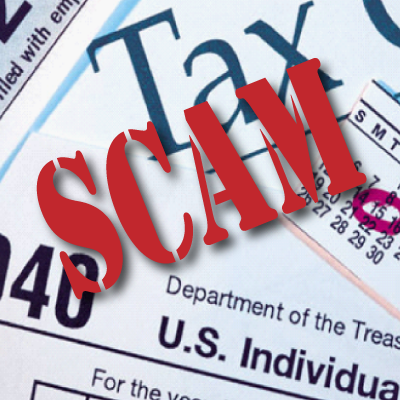Taxes
Phone Scams Draw in Elderly Taxpayers
Adding to the confusion is that some of these calls are recorded and robot-generated, and others come from live callers. While many Americans are on to this scam, the elderly frequently find it unsettling, or even scary. Those who have no one to turn ...
Feb. 03, 2016

Threatening calls from crooks pretending to be IRS agents have been going on for years now, but they are particularly alarming to elderly taxpayers.
“First they called to tell me they were going to sue me unless I called them back and made payment arrangements immediately, and then they called to say they were suing me!” reports 91 year-old Mary Flippen of Charlottesville, VA. The calls to residents of her retirement community are so widespread that the director called a meeting of the residents to warn them to ignore the calls.
Adding to the confusion is that some of these calls are recorded and robot-generated, and others come from live callers. While many Americans are on to this scam, the elderly frequently find it unsettling, or even scary. Those who have no one to turn to are prime targets for these criminals. Reassure the potential scam victims in your life that there are several tip-offs that the call is con.
- The IRS won’t call you out of the blue. You’ll first receive correspondence regarding your tax issue.
- The tax code provides all taxpayers the opportunity to appeal their case. IRS will not come after you with handcuffs before you’ve had an opportunity to defend yourself. Arrest threats are a sure sign of a scam.
- The real IRS will never ask you to use a pre-paid debit card or require a specific payment form.
And of course, no one of any age should give out credit card information over the phone – the IRS won’t ask for it.
If you or someone you know receives this kind of scam call, one option is to refer the caller to your tax professional, if you have one. If not, this might be the time to alleviate the stress of preparing a return by hiring a professional. Keep in mind, however, that care must be taken in choosing a paid return preparer because there are scam artists in that area as well.
Check to make sure that any preparer you choose has an IRS Preparer Tax Identification Number – no one may prepare taxes without being registered with the IRS. Also make sure that the preparer has a federal or state license and must complete annual continuing education to maintain that license; the tax code changes constantly and you want a preparer who is up-to-date. A searchable directory of federally licensed enrolled agents is available at eatax.org. Enrolled agents are overseen by the IRS, must pass a background check and stringent testing, and must report continuing education to the IRS.
Also remember that the IRS does not use unsolicited email, text messages or any social media to discuss your personal tax issue. For more information on reporting tax scams, go to www.irs.gov and type “scam” in the search box.
